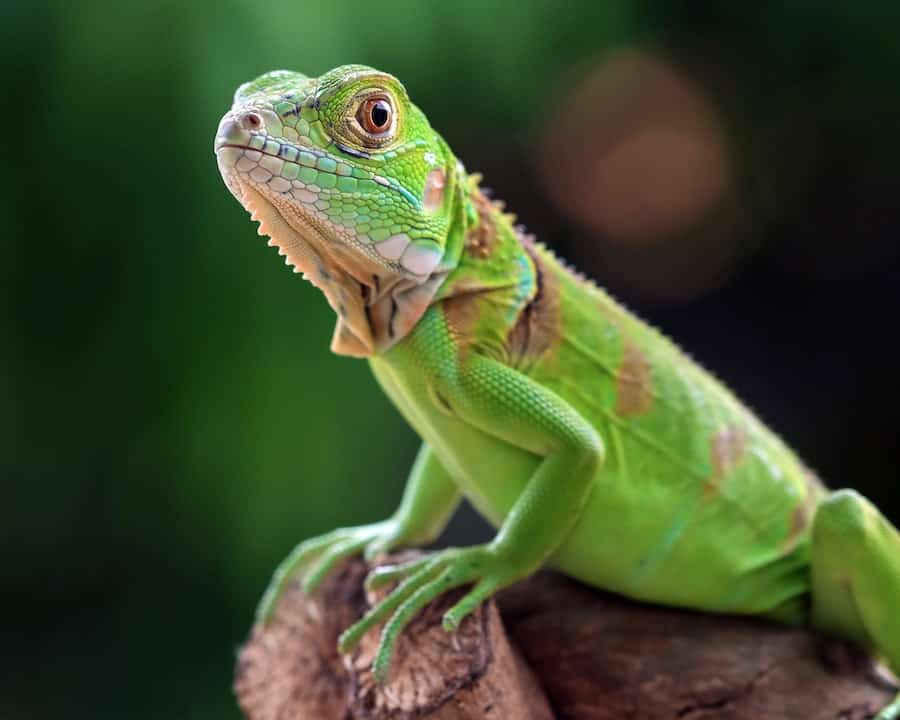Iguanas are some of the coolest looking reptiles, resembling miniature living dinosaurs. Due to their pre-historic appearance, many people are interested in keeping them as pets, only to find they require much more work than originally anticipated.
As a general rule, iguanas are not good pets for beginners, as they require extensive experience and knowledge to meet their many unique needs. Due to their temperament and size, beginners may find it difficult to care for these beautiful creatures.
If you’re a first-time lizard owner and are considering adding an iguana to your household, you may want to reconsider. Although iguanas have many positive qualities, there’s no denying they’re a better fit for experienced owners for the following reasons.
1. Iguanas Can Be Aggressive
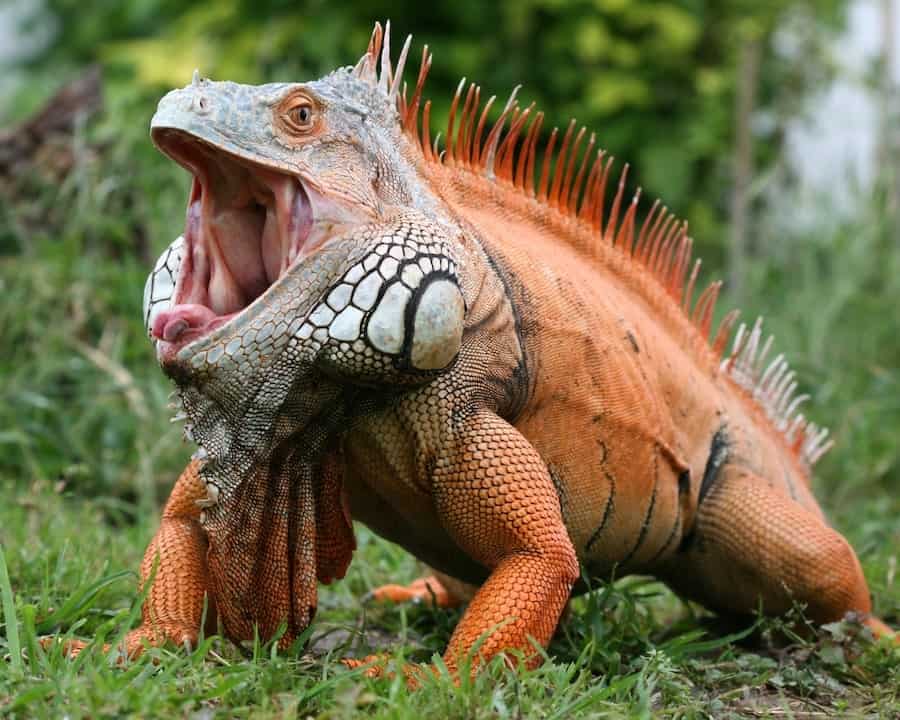
While the exact number of injuries from pet iguanas is uncertain, they can be very dangerous, thanks to their powerful jaws, muscular tail, and razor-sharp claws.
Additionally, many people don’t realize they are actually venomous, as they’re equipped with atrophied glands which secrete a weak venom. While this venom is almost always harmless, it may cause allergic reactions in a small group of people.
Iguanas are known to bite and whip their tails when threatened and can cause painful scratches when protecting their territory.
For more info on angry iguanas, check out this post I wrote: 7 Signs An Iguana is Mad: Ignore At Your Peril.
2. Iguanas Can be Difficult to Tame
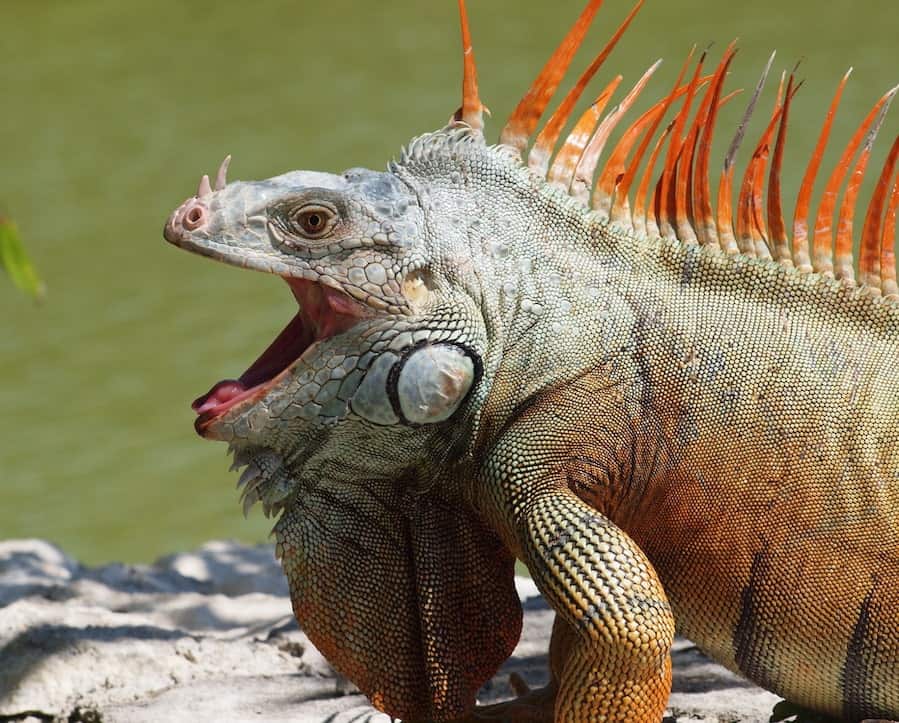
Iguanas are wild animals, and they don’t try to hide it. In the wild, they control large territories and enjoy wandering throughout this area. When confined to a cage, they can become restless, and incessantly try to escape.
They can also become destructive, as they’re known for digging and tearing up their enclosure. As untamed animals, iguanas often show aggressive behavior when held by squirming, scratching, and potentially injuring the one trying to hold them.
Iguanas love climbing and will constantly seek higher ground within their enclosure, which they’ll also do if they’re set free in your home. Another unsavory part of iguana ownership is the constant poop left behind in random places.
Not all iguanas are extremely aggressive. Other breeds, like the Rhino iguana, are much more calm and easy to tame. To learn about the best pet iguanas, check out this post I wrote called “5 Best Pet Iguanas: Green, Rhino, Spiny Tail, Desert, & Blue.”
3. Iguanas Need Extra Care
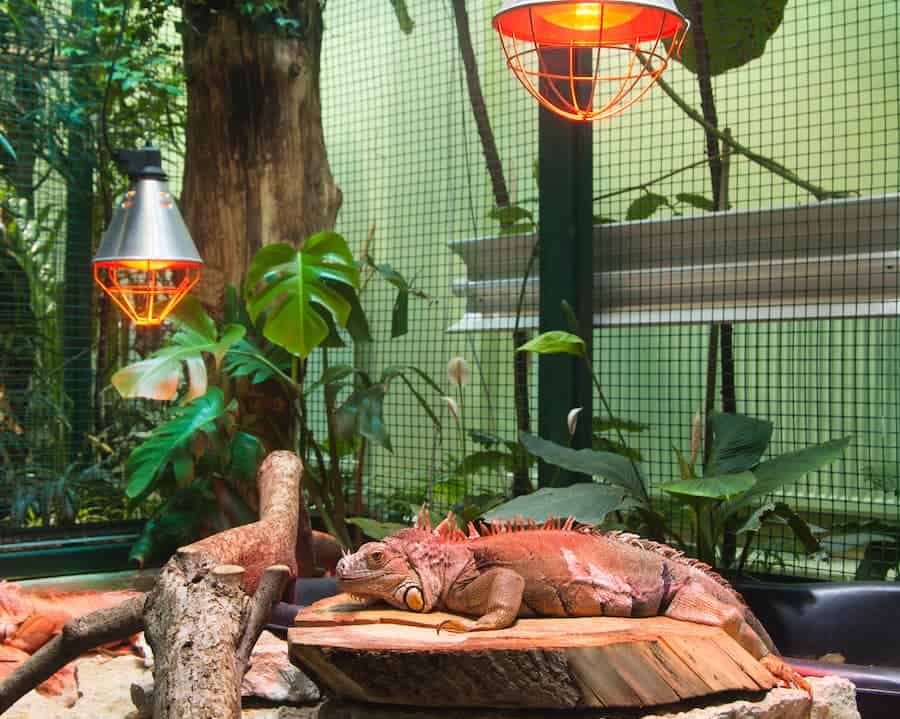
Iguanas are very high-maintenance animals which require extensive attention and care. There are many different aspects of ownership you must be prepared for to ensure your iguana stays happy and healthy.
Lighting
Iguanas are tropical creatures which need ample lighting to survive. Their bodies cannot produce vitamin D3. Hence, they require UV light for proper production.
Vitamin D is essential for calcium absorption, which ensures the reptile has a strong immune system and bones. Lighting also helps them control their sleep cycles, indicating daytime from nighttime, and when to eat.
Ensuring they have an easily accessible basking spot directly under their light is essential for optimal vitamin absorption.
Heating
As ectothermic lizards, heating plays an important role in an iguana’s bodily system function. Sunbathing (or heat bathing when in their enclosure) helps raise their body temperature, which supports a strong immune system and healthy digestion.
Without access to higher temperatures, iguanas cannot properly absorb nutrients, causing them to become sick, lethargic, and weak.
Humidity
In addition to ample light and heat, iguanas need a highly humid atmosphere within their cage. The humidity level should stay around a constant 70% to help prevent kidney disease and poor shedding.
Bathing
Did you know that iguanas require more bathing than dogs? In fact, many owners choose to provide daily baths for their lizards, which can be very time-consuming.
Although it can get tedious, bathing your iguana is essential for their health, helping to prevent skin cracking, infection, and irritation. It also helps rehydrate and moisten their skin and allows them to breathe more deeply while in the higher humid-filled bathroom.
Claw Maintenance
Due to their razor-sharp claws, proper claw maintenance is essential for your safety and to stop your iguana from destroying everything in sight.
Regular trimming is necessary, but you must ensure you don’t cut too high and damage any of the sensitive blood vessels located within the claw. If you do cut a vessel, it can cause heavy bleeding and intense pain to the lizard.
Enclosure Maintenance
Maintaining your iguana’s enclosure is virtually a full-time job, as it requires daily care to ensure it stays clean and odor-free. You will have to remove the poop daily and wash their water and food bowls.
It’s also important to remove any leftover food that was not consumed to avoid rotting and bugs. In addition to your daily tasks, you will also have to completely empty, wash, and disinfect the enclosure once a week, including all accessories inside.
4. Iguanas Can Carry Diseases
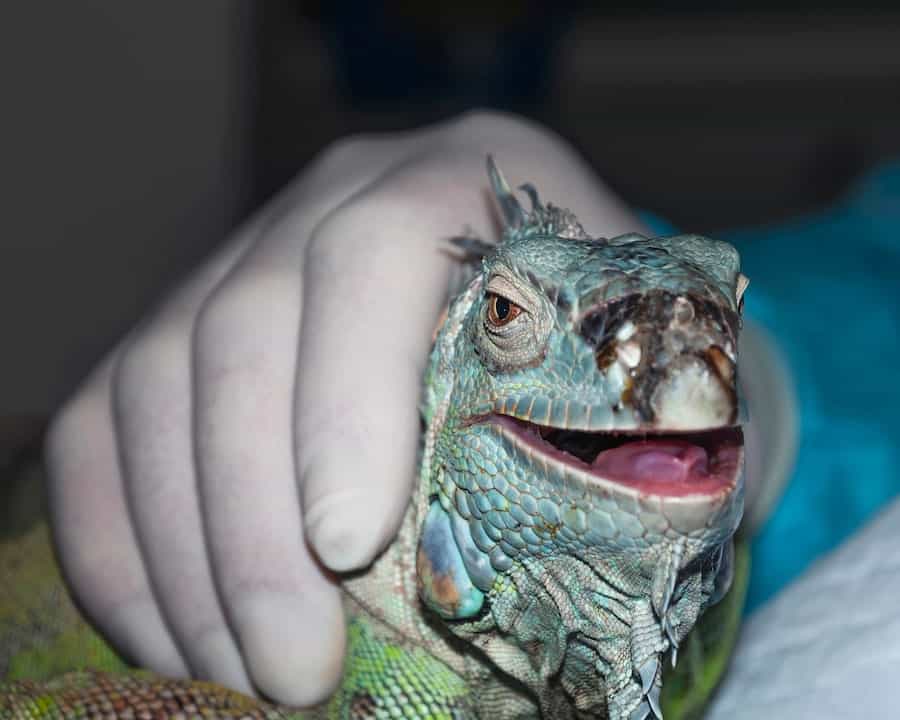
Iguanas are known to carry many bacteria and diseases that are harmful to humans, including Salmonella, which is especially deadly to children.
Therefore it is essential you take your new pet to the vet for a checkup, and continue to do so on a yearly basis.
5. Iguanas Grow Into Large Reptiles
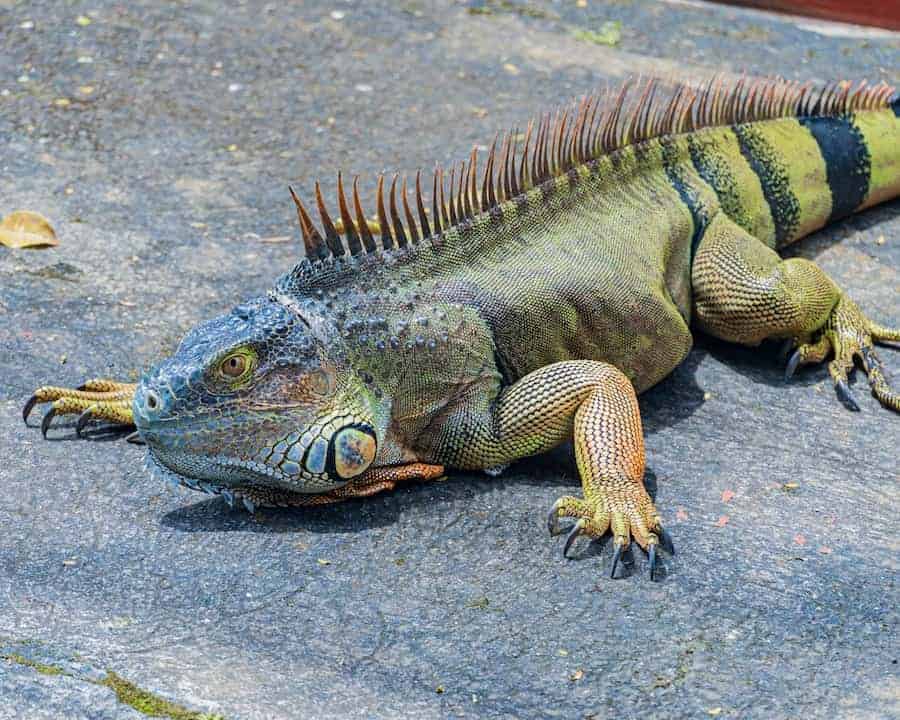
It’s not uncommon for an iguana to reach a twelve to seventeen-inch snout to vent length or SVL and a total of 5-6 feet. Therefore, you must be able to find space for a fairly large enclosure.
As your iguana grows, its cage must grow with them, providing them ample space to move around.
Are Iguanas Good Pets For Children?
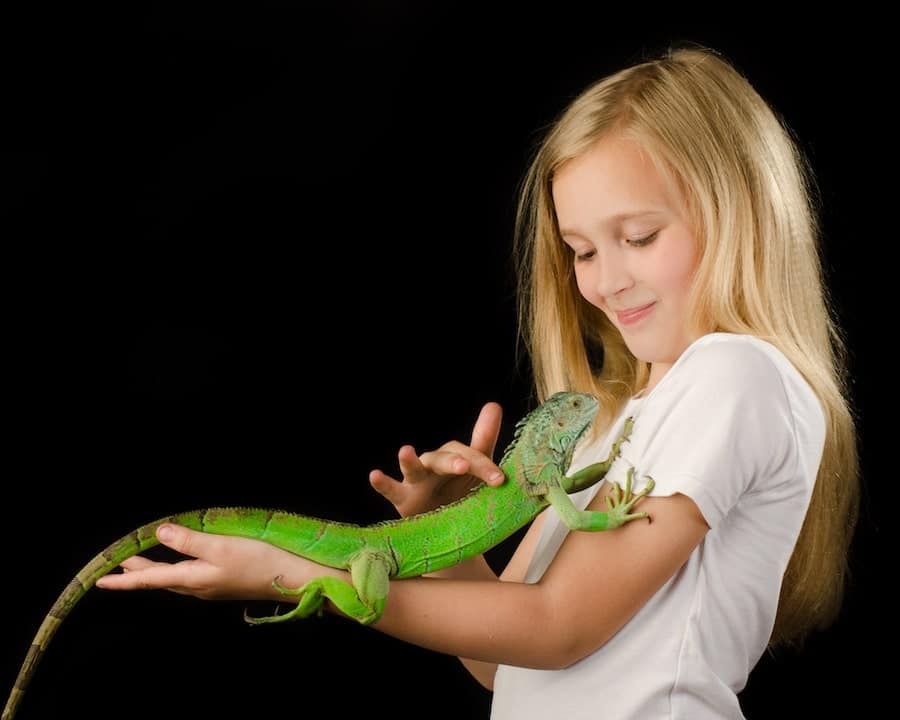
Due to harmful bacteria, bad temperament, large size, and various sensitive requirements, iguanas do not make good pets for children, who can be unsuspectedly bitten or tail whipped. Children will also have a much harder time determining an iguana’s behavior and warning signs.
Which Lizards Make Better Pets For Beginners?
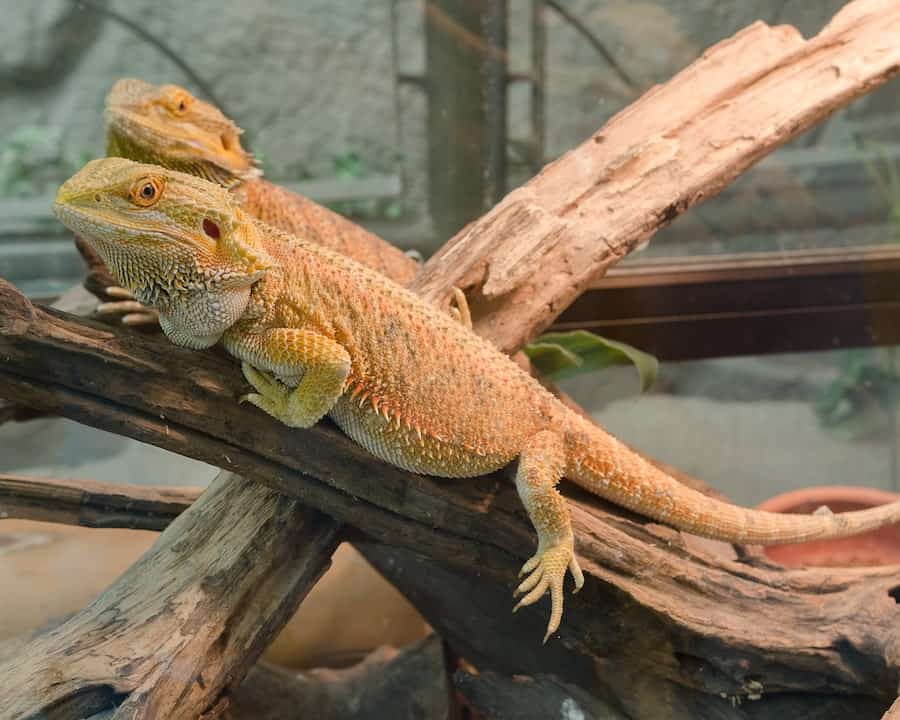
If you’re just starting out with reptile ownership, there are better options than iguanas for your first lizard. Water and Bearded Dragons make great pets and are sure to make you fall in love!
These mini dragons are ideal for beginners thanks to their smaller size, less aggressive and docile temperaments, and more affordable cost of ownership.
So skip the iguana and choose a lizard that will bring you and your family years of joy.
Which Iguana Is Best For Beginners?
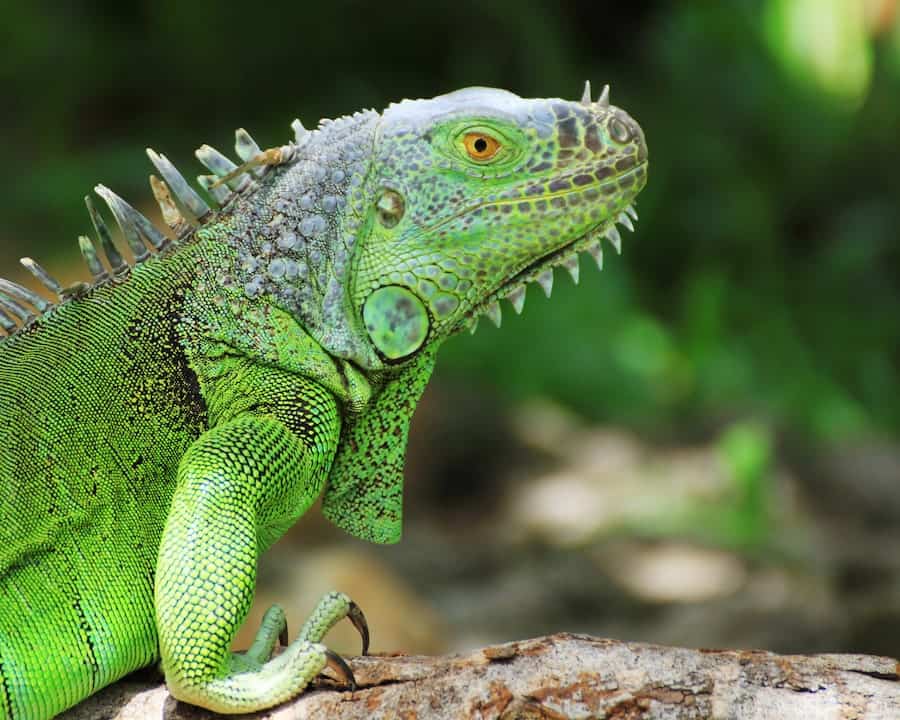
As a general rule, the green iguana is the best type of iguana for beginners, as they are less costly. There is also much more information regarding green iguana husbandry than any other type of iguana.
If you still need help deciding whether an iguana is a good pet for you, check out this post I wrote called, Pros & Cons of Owning an Iguana: Is This Pet Right For You?

